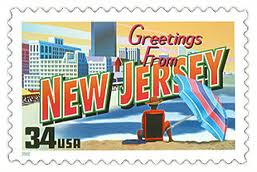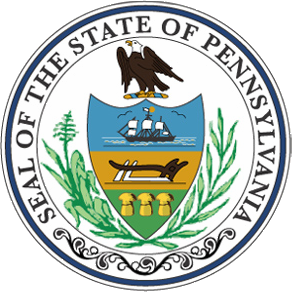If you were redirected to this article from 2+2, Facebook or Google+, we apologize but that content has been removed due to the parties solving their differences privately in regards to the PokerUpdate/C&D issue that was raised recently.
Today’s opening of Nevada-based online poker site Ultimate Poker marks the fully-regulated debut of American real-money online poker, but the legal frameworks surrounding the developments in Nevada, New Jersey and Delaware might have some unintended consequences, possibly reopening the online market to poker sites from overseas.
Curious as to how? I thought so.
I was researching some of the public comments published by the Nevada Gaming Commission a couple of weeks ago, in response to the NGC’s call for input on important topics to be considered, should that state pursue interstate or international compacts with other jurisdictions, thereby allowing players from those other states or countries to play on Nevada-based sites.
Whether or not these other states or countries ever agree to let Nevada service their citizens for online poker remains another open question, though Nevada itself fast-tracked legislation authorizing such compacts into law in February, after the prospects of a federal bill collapsed.
The comments received came from a well-spread assortment of interested parties, from individual players to gaming attorney David Gzesh, and from geo-location firms hawking their wares to major corporations already licensed to do business in Nevada, including Caesars, 888 Holdings and SHFL (Shuffle Master).
One of the prominent themes among the corporate responses, many of which were no doubt drafted by those companies’ business council, was the need to clarify that within such agreements, Nevada itself be declared as the physical location where the wagers are actually taking place. It’s an important concept for several reasons, because it would allow Nevada, or any host jurisdiction, to exert authority over such matters as player cheating, interstate disputes, differences in financial reporting requirements… a whole string of valid concerns, right down the line.
Mind that this is a concern being raised over interstate wagering, which also would apply to international wagering. To the best of my recollection, the statutes governing online wagering in all three states that have already legalized online poker specifically declare that the wager takes place in that state, regardless of where the player is situated.
Fast forward to this morning, when a guest editorial by prominent gaming attorney A. Jeff Ifrah was published over at pokerfuse, which with full disclosure, is another outlet where my words appear. Ifrah’s piece, “Location of the Game,” is part of the fuse’s new premium subscriber service, meaning that the bulk of the story is hidden behind a paywall, but the gist of Ifrah’s argument is that the DOJ’s argument, used as justification for many of its busts of international firms (including “Black Friday”) is a “fiction”.
It’s a compelling argument. Here’s one brief quote:
The DOJ applied the same reasoning in order to justifyshutting down and seizing the assets of online poker websites in the U.S. in April 2011: because players were located in the U.S., the DOJ alleged that the gaming transactions took place in the U.S. However, this user-based approach to determining where an i-gaming transaction takes place yields an inaccurate result, because it does not take into account the fact that the bet is not placed until it reaches the gaming operator’s server and is processed through its system
— A. Jeff Ifrah, “Location of the Game,” pokerfuse.com
What Ifrah declares is that online wagers must be declared to be occurring in the states where these new sites are based. Ifrah doesn’t introduce the contrapositive in this piece, which by now should be causing the light bulb to go on in your head as well: If the wager is being defined by statute as based on the site’s physical location (meaning the servers where the core software engine resides), and not the players, than all those offshore sites aren’t doing business in the U.S. at all… and never have been.
The payoff is this: New Jersey, Nevada and Delaware, by declaring that their own authorized sites are the location of the wager, may have already inadvertently authorized their citizens to go ahead and wager on offer sites without fear of any repercussion. The exception to this is sports wagering, which is covered under separate law.
 Now, I’m not a lawyer, and this column in no way represents any form of legal advice, but darned if it doesn’t look like New Jersey and these other states may have already rolled out a legal red carpet, allowing some international sites to open the door back up to at least those three states. This is particularly if they’ve never served the U.S. market previously. Oddly enough, PokerStars and bwin.party, the latter being the parent of PartyPoker, might be among the few companies who couldn’t re-enter these newly opened states, due to the nature of the settlements those firms have already made with the Department of Justice.
Now, I’m not a lawyer, and this column in no way represents any form of legal advice, but darned if it doesn’t look like New Jersey and these other states may have already rolled out a legal red carpet, allowing some international sites to open the door back up to at least those three states. This is particularly if they’ve never served the U.S. market previously. Oddly enough, PokerStars and bwin.party, the latter being the parent of PartyPoker, might be among the few companies who couldn’t re-enter these newly opened states, due to the nature of the settlements those firms have already made with the Department of Justice.
Has Pandora’s Box been opened? We’re likely to find out the answer to this one sooner, rather than later.
100% up to $3,000 Bonus
Bovada is our most recommended ONLINE CASINO and POKER ROOM for US players with excellent deposit options. Get your 100% signup bonus today.




Leave a Reply
You must be logged in to post a comment.